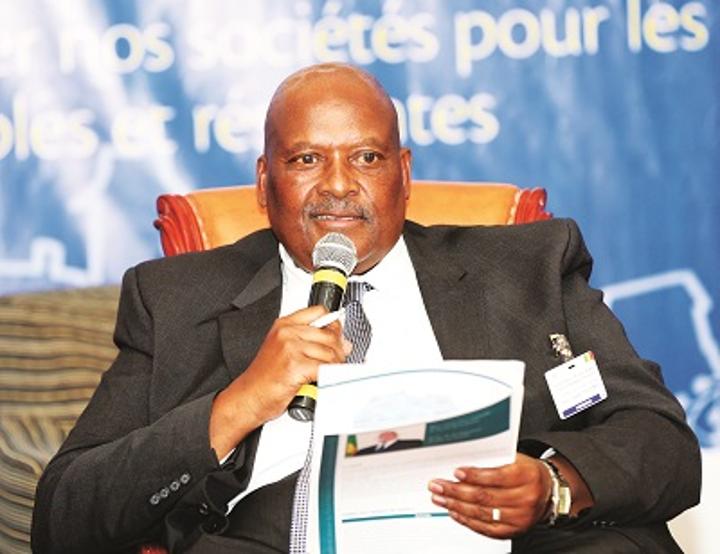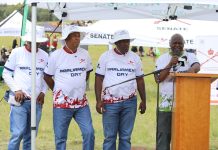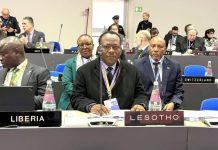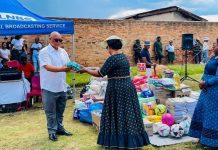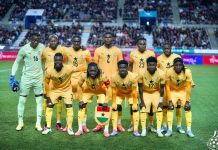Africa-Press – Lesotho. Minister of Law and Constitutional Affairs Hon. Habofanoe Lehana presented Lesotho’s Universal Periodic Review (UPR) of human rights constitution for United Nations (UN)
member states on Wednesday. The presentation was intended to put forward the developments that have emerged since the last review, to indicate progress made
on some noted recommendations and challenges encountered in fulfilling Lesotho’s obligations. Lehana indicated that since the previous review in 2015, Lesotho has endeavored on implementing most of the recommended
amendments and continues to attend to such. The minister stated, among other important measures that upon realizing that some of its political and security problems were due to a
leaky constitution, Lesotho established constitutional reforms in an effort to amend its constitution having gathered the required information. It has also
made significant advances towards addressing backlog of cases in the courts of law through the Integrated Case Management System which will enable law
enforcement agencies to acquire an automated case management. He designated that when fully implemented, the system will integrate the entire chain of work
from investigation to confinement. Other proposed recommendations from the previous review were a closer look at international obligations and technical assistance,
cooperation with treaty bodies, promotion of human rights, women rights and human trafficking, rights of persons with disabilities and everyone’s right to
health and education to mention a few. According to the minister’s report all these and other recommendations are progressing despite a number of challenges
that Lesotho is faced with. It was stated in the report that Lesotho has taken steps to repeal criminal defamation laws or insult laws which impede freedom of speech.
Hon. Lehana clarified that the Constitutional Court in this regard held that criminalizing defamation had an awful effect on journalistic freedom of
expression, resulting in self-censorship by journalists and consequently a less-informed public. To continue the implementation, Lesotho has reportedly allocated
in its 2019/2020 budget to increases targeted at HIV testing and services for key populations, which include, Lesbians, Gays, Bisexual, Transgender and
Intersex (LGBTI) community. This is said to be due to the Legal Environmental Assessment (LEA) report, which assessed the extent at which LGBTI, sex workers
and key populations are disproportionally affected by the HIV prevalence. However, there is a series of challenges in this regard according to the report.
These include Women and children who continue to experience gender based violence and human trafficking despite measures taken by the Government to eliminate GBV.
He said that frequent transfers of trained Child and Gender Protection Unit (CGPU) officers also compromise efforts by Government, UN agencies and development partners to strengthen the capacity of
the Unit in prevention of and response to gender-based violence and other offences. The report on corruption on the other hand shows that it continues to be a serious challenge to development not only in Lesotho, but
globally. Despite notable steps undertaken by Government, to improve and capacitate the work of the Directorate on Corruption and Economic Offenses (DCEO), corruption remains high.
Progress on implementation of human rights in general is blocked by cultural practices and gender stereotypes which seem to hinder equal opportunities between men and women as well as boys and girls
according to the report. At the end of the UPR, other new recommendations from member states were allotted for and these include continuation of efforts in fighting
human trafficking, organizing outreaches to remote areas to educate on human rights, ratification of protocol on people with disabilities and with great
concern, abolishment of death penalty and ending of early child marriage. The fellow member states picked up on serious concerns which include injustices by
law breaking police and therefore encourage an establishment of the human rights commission in the country. In response to the mentioned recommendations, Lehana promised a close look into the concerns and thanked the congregation for their advice and continued support.

